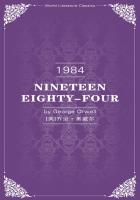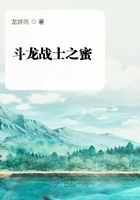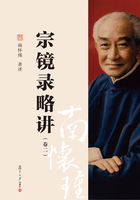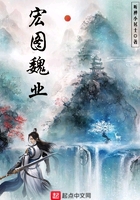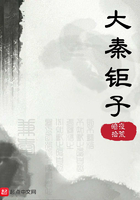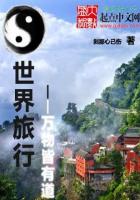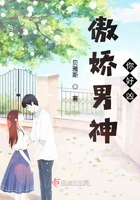Over the long history of imperial and private book collection, special attention was given to the protection of books. Therefore, a complete set of techniques and methods were developed, which are still useful today. Generally in order to address theft, tainting and other human damage, the following two approaches would be involved:
The first was classified arrangement and management. Some books were arranged according to content. For example, in Guanwendian, during the Sui Dynasty, Confucian classics and history books were kept in the east chamber; philosophy and literature books in the west chamber. Tang Dynasty book collector Li Bi used red toothpicks to mark Confucian classics books, green for the history, blue for the philosophy and white for the literature. The practice was similar to modern category management and is very practical. Some arranged books according to quality. For example, book collection agencies in the Sui Dynasty used red colored glaze scrolls for the best quality books, black and red for ordinary books and black for sub-standard books. Similarly, in modern libraries, books are also classified as rare and ordinary editions. Some managed books based on their function. For example, Liu Gongchuo (763–830) from the Tang Dynasty had over 10,000 volumes and each one had three different versions, the best one deposited, a medium quality one for daily reading and lesser quality ones for beginners to learn. Such classification may well be termed unique insight to facilitate use and protection of books.
The second was strict restrictions on readers. Encouraged by the value of their possessions, private and official libraries were generally closed to the public, making them quite inaccessible. For example, the imperial collection was not supposed to be read by ordinary people; even senior officials had to follow very strict rules. Private collectors adopted a similar practice. For example, during the Ming Dynasty, Fan Qin (1506–1585) made it an explicit family rule that the books in Tianyige were not for lending and not to be taken outside the building. He had each and every one of his sons hold one key to the book house. Only when every son was present could the lock be opened. Books were not lent to outsiders; anyone within the family who wanted to read could do that inside the house during daytime. Smoking was strictly prohibited. Some other collectors allowed lending or outsiders in their library but with very stringent rules attached. For example, the book collector Ye Dehui (1864–1927) made it clear that whoever could not go inside his library without his company. No servants were allowed to follow. Winter coats or loose clothing were not allowed inside the library. Long conversations had to be held outside.
These rules may have their limitation but still served as some kind of protection to the books and avoided losses and theft.
Natural hazards to books are fire, water and insects. Against these problems the ancient preservation techniques of books was also soundly developed. The main methods were the following four:
Architectural protection
The artistic values and practical functions were ingeniously integrated in the buildings of many ancient libraries, which embodiedthe the great wisdom and profound cultural connotations. For example, “Shishi” and “Jinkui” in the Han Dynasty were designed as a measure against fire. In terms of architectural protection, the design and construct of Tianyige in the Ming Dynasty was also advanced at the time. Tianyige has two stories, the one above is a complete hall; the other below is separated into six chambers to prevent moisture damage. All the books are deposited on the second floor with windows at the front and back. Shelves were spaced out and doors were placed in front and behind the book cabinets for ventilation. Insecticidal herbs were also placed in cabinets. To prevent fires, a pond was dug in front of the library, which is called Tianyi Pond. Only in this way, could much damage caused by natural hazards be efficiently reduced.
Dyed paper
Even in the days of bamboo and wood strips, the treatment of drying green bamboo strips on the fire “Shaqing”—was used to extend the life of bamboo strips. After the invention of paper, dying was used in order to prevent the paper from insects and worms.
As early as the Han and Wei periods, people used juice from boiled Huangbo or cork to stain paper and protect it from insects. This dyeing process is called “Ruhuang” and it gives the paper slightly yellow tint. For example, most of the sutras preserved in the Dunhuang Grottoes from the Tang Dynasty were stained yellow. Despite some broken parts, the paper is in good condition without any worm damage after over 1,000 years.
During the Song Dynasty, a new method was invented. Paper was soaked in Sichuan pepper solution. The chemical composition and strong pungent odor of the pepper have a repellent effect on worms. During the Ming and Qing dynasties, in order to prevent the multitudes of bookworms caused by humid weather in the south, a special paper called “10,000-year red paper” or wannian hongzhi was invented. This type of paper was prepared by painting paper with lead oxide. It was often used in sealed papers or as backing. The white and red combination looks neat and also prevents worm damage.
Chemical approaches
Pest control agents or insecticides were purposely placed in stack room to prevent books from damage by bookworms. Ancient people also had good recipes for it. “Qimin Yaoshu” mentioned that musk and papaya could be place on bookshelves to prevent worms. Later herb-of-grace was put in libraries to prevent insects. It is very effective and it is practiced today in some libraries. Besides, the ancients also placed realgar and lime under bookcases, tobacco and cinnamon inside them to prevent book worms.
Layout protection





